#Tennesee Williams
Explore tagged Tumblr posts
Text
i know its pointless to debate meaningless tumblr litcrit terms but "haunting the narrative" as a concept gets thrown around all too much for my liking. you can't use haunting the narrative to describe absolutely any character who was grieved over (especially if the character functionally exists within the narrative to die i.e. the dozens of dead dance era targs)
i think to truly haunt the narrative the central thread of the story needs to be a clash of interpretations over what the characters intentions or feelings were (or at least a clash of perceptions). the first one i can think of is Suddenly, Last Summer by Tennesee Williams
in this story, cathy is a young woman who witnessed the death of her cousin sebastian last summer, and she wars with sebastian's mother violet over what exactly happened, who sebastian was, if cathy is or isnt mad. it's revealed that sebastian was queer and also kinda a predatorand also catherine was super into him, and obviously violet doesn't want this getting out. cathy and violet both mourn the versions of sebastian they each have in their heads: as a mommas boy or a sexy older cousin, while they both aim to stamp out the secret they both hold about him. but sebastian is slowly revealed to the audience in a careful peeling back of his character, in a way that his ghost physically occupies so much of the page
the other example is the titular rebecca from rebecca by daphne du maurier, who's character the audience and narrator have to uncover entirely posthumously through mr de winters or mrs danvers or whoever else. the narrator is literally haunted by rebecca, but the narrative form is too - it is deciding what her intentions are, and how this untimely death with resolve itself in the characters
its why i balk at the idea of robb stark "haunting the narrative" (no hate to robb we love robb here). first of all hes alive for 2.5 books but second we don't really uncover more about him after his death. his siblings mourn him but theres hardly a question of what his legacy/intentions/or character were like before his death that is reshaped afterwards
#also i did not proofread this before going to bed gn#beautiful dead girl robb stark#literary criticism#suddenly last summer#rebecca daphne du maurier#tennesee williams#asoiaf#fire and blood#robb stark#rhaegar and lesser extent lyanna haunt the narrative lets be real
303 notes
·
View notes
Photo
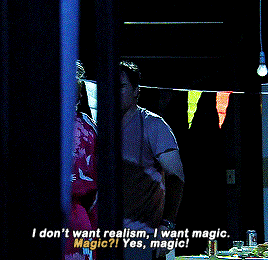
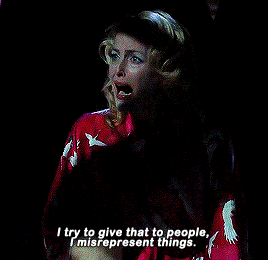
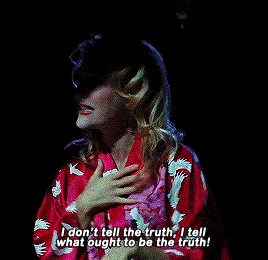

GILLIAN ANDERSON in A STREETCAR NAMED DESIRE (2014)
#*#streetcar#a streetcar named desire#blanche dubois#gillian anderson#gandersonedit#theateredit#tennesee williams#userbbelcher#m!lfsource#femaledaily#chewieblog#usercande#tusershay#userjean#userchelsea#userbru#useraffa#feeling really nostalgic!!#i can't believe it's almost been ten years#seeing this live is gen one of the best experiences of my life
859 notes
·
View notes
Note
Hello! If you'd like, can you please do a web weave about being scared of the pain and nostalgia that comes with a phase of your life ending and a new one beginning?



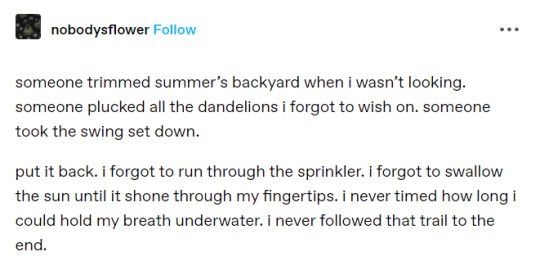


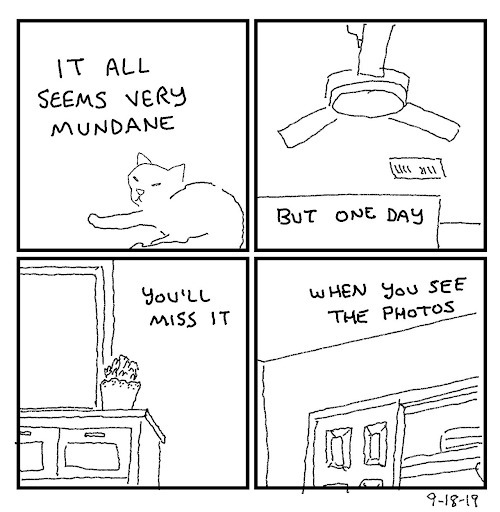





I suppose all you can really do is look forward.
Sorry for using Up the Wolves in another one of my webs. It will... probably happen again.
You Don't Have to Like Me: Essays on Growing Up, Speaking Out, and Finding Feminism, Alida Nugent | The Handmaid’s Tale, Margaret Atwood | The Little Prince, Antoine de Saint-Exupérry | @/nobodysflower | Miriam Adeney | The View Between Villages, Noah Kahan | @/shhhitsfine | The Milk Train Doesn't Stop Here Anymore, Tennessee Williams | The Painted Drum, Louise Erdrich | Up the Wolves, The Mountain Goats | And the Mountains Echoed, Khaled Hosseini | This Book Will Save Your Life: A Novel, A.M. Homes
[text transcription and image ID in alt text]
#webweaving#webweaving change#compilation#web weave#web weaving poetry#parallels#prose#requests#literature#on nostalgia#༺✿ web weaves by basil ✿༻#alida nugent#margaret atwood#antoine de saint exupéry#miriam adeney#tennesee williams#louise erdrich#khaled hosseini#a.m. homes
323 notes
·
View notes
Text



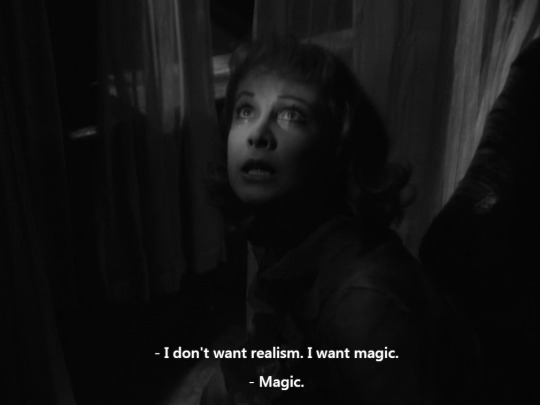

sofia coppola, the virgin suicides // clarice lispector, selected cronicas // the cranberries, dreams // elia kazan, a streetcar named desire // oscar wilde, salomé
#dreams#dissociation#daydreaming#derealization#girlhood#the virgin suicides#cecilia lisbon#clarice lispector#oscar wilde#salome#a streetcar named desire#tennesee williams#vivien leigh#the cranberries#dolores o'riordan#web weavings#girlblogging
182 notes
·
View notes
Text

68 notes
·
View notes
Text

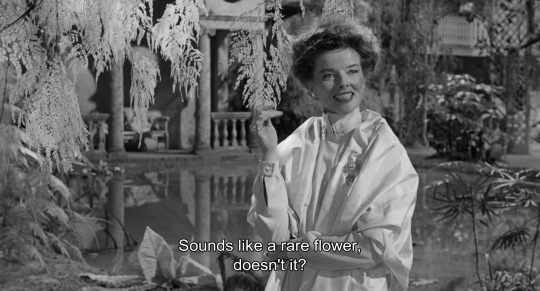
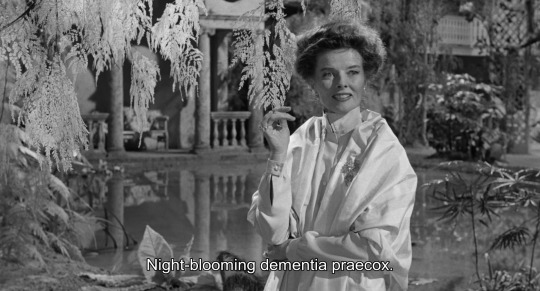

#old hollywood#films#film#movies#lol#katherine hepburn#suddenly last summer#black and white#Flower#exotic flower#rare flower#tennesee williams
17 notes
·
View notes
Text
“My only point, the only point that I'm making, is life has got to be allowed to continue even after the dream of life is--all--over....”
― Tennessee Williams, Cat on a Hot Tin Roof
16 notes
·
View notes
Text
Since I answered the ask about Anne Howard and had to think about her relationship with Gabriel, I also spent some time thinking about the other heterosexual couple in The Patriot. And something about the way Benjamin and Charlotte weirdly flirt reminded me of another couple, but I could not put my finger on which one until today.
Even though Cat on a Hot Tin Roof (1955) is my second favorite play by my second favorite American playwright, I haven't thought about it in years: a tragedy for which I am compensating now! It's set in the mid 20th C South, so prepare yourselves for some unhinged names. The story focuses on three unhappily married couples: Brick and Maggie, Goober and Mae, and Big Daddy and Big Mama, the parents of Brick and Goober (because what else could people who chose those names for their sons possibly be called?) The two young couples, and the numerous children Goober and Mae have together, have gathered at the family plantation on the Mississippi Delta to help break the news to Big Mama that her husband is dying of cancer (along with less noble motives we'll discuss later).
Inheritance of land and birth as a source of rejuvenation in the face of death are important themes in Cat as in The Patriot, but the comparison of the two highlights a third theme that is likely unintentional on Rodat/Emmerich's end: heterosexuality as industry.
Brick is the younger and favorite son, but he and Maggie have no children. It transpires over the course of the play's three acts that Goober has married Mae, a former beauty queen, and had all these children in an attempt to charm his father's affection away from Brick and inherit the estate. This plan is foiled at the end when Maggie triumphantly announces that she is carrying a child "sired by Brick out of Maggie the Cat." This line in which she compares her husband to a stud and herself to a broodmare was recalled to my mind by the "They come from good stock on their mother's/father's side" exchange between Benjamin and Charlotte. The baby in Charlotte's arms at the end of the film demonstrates that at least one of Benjamin's hopes and prayers for the new nation has come to fruition. There is new stock, even if the bloodlines are, uh . . . not so new. The baby Maggie promises carries the same hope for the future with one notable difference. It's based on a lie, and it's hardly the first one to appear in the play.
Brick is, in addition to being a former football star and an alcoholic, a deeply repressed gay man, one of the few to actually appear on stage in a Williams play. Usually, his gay characters are dead before the plays begin and yet among the most important characters in them, and this play has one of those, too! Brick's relationship with deceased fellow football player Skipper is the most important of his life and a source of deep resentment and jealousy in Maggie. When she confronted Skipper about his feelings for Brick, he attempted to prove her wrong by having sex with her, but failed. He also tried to get Brick to run away with him, but failed in that as well, and then he committed suicide: a typical cheery 1950's representation of gay life. Brick fares little better; the play ends with Maggie locking up his liquor supply to coerce him into sex so they can "make the lie true."
Cat is a scathing critique of the role lies play in heterosexual family life. Goober and Big Daddy do not love their wives any more than Brick does, instead seeing them only as a means to an end. Mae seems well-aware of this, but by God she has committed to winning away Maggie's fortune by out-breeding her, and she is going to see it through! Big Mama has performed her roles as the dutiful wife for so long she seems incapable of anything else. Big Daddy, at the end of his life, has decided to part way with "lies and mendacity," which in part means confessing to Brick how he came by his land, an inheritance not from his father but from another couple that could not have children . . . because they were both men. Perhaps he, like Brick, only married because he had something to prove.
Benjamin is already proven as a sire of seven children; why does he need to marry again? This is a question I ask each and every time I revisit, and the film fails to answer it in a way that has anything to do with Charlotte herself. When she reminds Ben that "I am not my sister," she is voicing everyone in the audience's thoughts out loud, and Ben's "I know" is not very reassuring. She seems to be in love with him from their very first scene: pinching her cheeks in the mirror when his arrival is announced, giggling like a schoolgirl when Ben's children jostle them into each other. He, on the other hand, only seems to think of her as a convenience. The only time he speaks her name are when he tells his children to go to her in the event of his death and when he delivers a voice over recap of the war's end framed as a letter addressed to her (and the children, of course). When she is not a destination for his children she is a womb provided to supply him with more!
It is hard to resist making a connection between these two stories about straight marriages brought to life by gay men, but Williams and the wives in Cat deserve better. After all, the tragedy is not simply that these men are trapped in loveless marriages but that the women are trapped with them. Maggie in particular is vastly richer and more nuanced character than Charlotte. But, if we consider who always manages to catch Benjamin's eye, who never fails to get a rise out of him, whose death brings about the end of Ben's engagement with the main plot of the story and his settling down with the mute props his wife and children have become . . . maybe Ben has something to prove after all.
#the patriot#cat on a hot tin roof#tennesee williams#roland emmerich#tragic gay men and their tragic wives#strategic reproduction#tbh maybe this is my favorite williams play!
19 notes
·
View notes
Text

6 notes
·
View notes
Text

-Άραγε γιατί η απογοήτευση κάνει εκδικητικούς τους ανθρώπους;
-Γιατί, στο βάθος, ο καθένας μας νιώθει πως είναι ολομόναχος.
-Καμίνο Ρεάλ, Τενεσί Ουίλιαμς
Μάιος 2024, από μηχανής θέατρο
#γρεεκ#greek#γκρικ ποστ#γρεεκ κουοτς#γρεεκ λοβ#ελληνικη ποιηση#γκρικ κουοτς#γρεεκ ποστς#λογια αγαπης#γρεεκζ#θέατρο#αγαπη#ελληνικά#ελληνικα ποστ#ερωτας#έλληνες ποιητές#αγάπη#ερως#ερωτας tumblr#ερωτευμένοι#ποιήματα#tennessee#tennesee williams
4 notes
·
View notes
Text
English majors get to read riveting plays like The Glass Menagerie.

6 notes
·
View notes
Text
When so many are lonely as seem to be lonely, it would be inexcusably selfish to be lonely alone.
Camino Real by Tennessee Williams
1 note
·
View note
Text

tennessee williams from a letter to donald windham, notebooks
3 notes
·
View notes
Text
Lament for the Moths – Tennessee Williams
‘A plague has stricken the moths, the moths are dying, their bodies are flakes of bronze on the carpet lying. Enemies of the delicate everywhere have breathed a pestilent mist into the air.
Lament for the velvety moths, for the moths were lovely. Often their tender thoughts, for they thought of me, eased the neurotic ills that haunt the day. Now an invisible evil takes them away.
I move through the shadowy rooms, I cannot be still, I must find where the treacherous killer is concealed. Feverishly I search and still they fall as fragile as ashes broken against a wall.
Now that the plague has taken the moths away, who will be cooler than curtains against the day, who will come early and softly to ease my lot as I move through the shadowy rooms with a troubled heart?
Give them, O mother of moths and mother of men, strength to enter the heavy world again, for delicate were the moths and badly wanted here in a world by mammoth figures haunted!‘
#poems#poems and poetry#poems on tumblr#richey edwards#nicky wire#manic street preachers#aesthetic#poetry#tennesee williams
6 notes
·
View notes
Text

Tennessee Williams, “The World I Live In”
1 note
·
View note
Text
Blanche DuBois on Desire

Scene Four - A Streetcar named Desire by Tennessee Williams
#literature#play#american#tennesee williams#a streetcar named desire#american literature#drama#desire#book#movies
1 note
·
View note